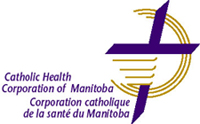Understanding the consensus development conference process
What is a consensus development conference?
Consensus development conferences are a way to bring together citizens, decision-makers and experts to address issues of public importance.
The conferences involve a series of experts who deliver scientific evidence on a subject to a lay panel of 12 people before an audience of several hundred.
The lay panel hears the evidence and takes it into consideration when they develop a consensus statement in the form of a series of recommendations. These are then read to the experts and audience and are used to develop policy going forward (Institute of Health Economics, n.d.).
There are five basic steps in the consensus development conference model.
- Developing the questions:
- The six to ten questions identified will form the basis of the conference. The questions are most often determined by experts in the field and include the most important areas needing to be addressed.
- Experts review the evidence:
- Scientific experts are assigned the questions. These well-published and recognized experts review the evidence and prepare a short report (three to five pages). The reports are provided to the lay panel prior to the conference.
- The conference:
- The scientific experts make presentations at the conference to address the questions posed. The lay panel and the audience question and seek clarification from the experts.
- The lay panel:
- The lay panel reviews the evidence prior to the conference, listens to the evidence at the conference, questions the experts and prepares written answers to the questions.
- The consensus statement:
- On the last day of the conference, the lay panel chair reads the consensus statement and takes questions from the audience. The consensus statement consists of specific answers to the questions posed and usually includes recommendations.
How has the consensus development conference model been adapted for this Initiative?
Palliative Care Matters is based on the consensus development conference model. However, adaptations have been made to better address this topic.
Discussions about palliative care in Canada are not new. This initiative is distinct because it puts the public at the center of the conversation. It asks Canadians what they want in terms of palliative care from their health care system.
What is involved in the Palliative Care Matters process?
The Covenant Health Palliative Institute, in partnership with Canada’s leading healthcare organizations, is undertaking a three-phase initiative to examine palliative care needs across the country. The cornerstone of the initiative is a consensus development conference to develop a national consensus statement and recommendations to promote consistent and timely access to high-quality, coordinated and integrated palliative care.
The initiative has three phases.
Phase One: Listening to Canadians
1. Engaging Canadians
Ipsos, a prominent Canadian public opinion and research firm, is gathering qualitative and quantitative data about Canadians’ knowledge, attitudes and expectations towards palliative care. Using an online survey and focus groups, participants will share the services and supports they value most, what they define as reasonable access and what they consider to be best practice. This public engagement process will also help identify potential members of the lay panel (please see Phase Two). Ipsos will provide a summary report and analysis of the findings to the lay panel for consideration.
2. Developing Questions
The Canadian Reference Working Group is composed of family representatives and individuals identified by the national stakeholders who have committed to supporting this project. These individuals, who have expertise, experience and/or passion for palliative care, have met and identified the questions that will be posed to the lay panel.
The questions are as follows:
1. What are the essential elements of an integrated and coordinated palliative care program that will help improve access to quality palliative care in Canada?
2. Do public health awareness campaigns effectively improve the awareness and quality of palliative care?
3. What are the essential components of quality palliative home care services for all Canadians?
4. What resources are required to ensure adequate education, training and mentorship for all healthcare providers and caregivers of Canadians experiencing a life‐limiting illness and their families?
5. What have strategic frameworks and plans accomplished for palliative care when adopted by countries?
6. Does measurement of indicators that address desired outcomes, including patient/family reported outcomes and experience, improve the quality of and access to palliative care?
3. Scientific Evidence Prior to the conference, an expert panel will be assigned a question and asked to prepare a three- to five-page paper outlining the scientific evidence that will inform each question. These scientific experts will also make a presentation at the conference; their findings will be subject to questioning and rebuttal by other experts and panel members.
Phase Two: Reaching a Consensus
From November 7-9, 2016, in Ottawa, Palliative Care Matters will host a consensus development conference. This is the central stage of this project . A Lay Panel of 12 Canadians will develop recommendations and a consensus statement.
A Lay Panel will:
- Read information prior to the conference, including the Engaging Canadians report, background context and scientific papers;
- Listen to the evidence presented at the conference, and
- At the conclusion of the proceedings, issue a consensus statement which answers the six pre-determined questions.
Approximately 200 stakeholders and members of the public are expected to attend the conference.
Phase Three: Creating Change
Phase Three begins by distributing the consensus statement to stakeholder groups, government agencies and members of the public. Phase Three will also share the work done in the earlier two phases, along with the urgent need to change the way that palliative care is delivered in Canada.
The Conference Board of Canada will produce a report summarizing the evidence and findings from all three phases. The report will also outline potential policy options stemming from the consensus statement and outline considerations for implementation.


















